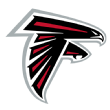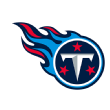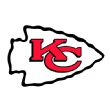Things change quickly in the NFL. It can be only a matter of weeks between a player starring in the postseason and unexpectedly hitting the market as a free agent. This time last year, Chris Long and LeGarrette Blount were Patriots. Nobody figured James Harrison would ever leave the Steelers. Nick Foles was a backup for the Chiefs. Here we are.
So as we head toward this year's Super Bowl, it's important to remember that they and dozens of other players who suited up for teams in last season's playoffs have changed squads. Likewise, there are plenty of guys who played meaningful roles for teams in this year's postseason who will be wearing new colors during the 2018 season. Others will be done with football altogether.
With that turnover in mind, let's look ahead at this season's playoff teams and project who might not be back for another go-round in 2018. The players in question are either free-agents-to-be, plausible cap casualties, or veterans likely to be considering retirement.

Atlanta Falcons
For the second offseason in a row, the Falcons should find themselves in relatively stable shape. In total, 18 of Atlanta's 22 starters from last year's Super Bowl remained on the roster this season, and the Falcons should bring back the vast majority of their regulars for another run toward the top of the NFC South in 2018.
Most of the upheaval should come on the defensive line. Nose tackle Dontari Poe is a free agent after joining the team on a one-year, $7 million deal. Interior defenders only get serious money if they can rush the quarterback, and Poe hasn't been the same player since undergoing back surgery. He had 10.5 sacks total in back-to-back Pro Bowl seasons in 2013 and 2014 and has just five sacks across the three subsequent campaigns. He's likely looking at another one-year deal on the free-agent market.
Adrian Clayborn has been more productive for the Falcons and hits the market with a career-high 9.5 sacks in 2017, but six of them came in one game against the Cowboys. With Atlanta moving Vic Beasley back onto the line of scrimmage as a defensive end on early downs, the Falcons likely will let Clayborn leave and replace him with 2017 first-round pick Takkarist McKinley at right defensive end.
Outside of that, you're looking at Matt Bryant (who will be kicking long after all of us have retired) and receiver Taylor Gabriel, who saw his big-play ability regress toward the mean in 2017 and might re-sign with the Falcons on a Marquise Goodwin-sized (two-year, $6 million) deal. There are no obvious cap casualties looming on the Falcons' roster outside of defensive linemen Brooks Reed and Derrick Shelby, who each started 14 games but failed to play even 40 percent of Atlanta's defensive snaps. Falcons general manager Thomas Dimitroff could save $3.3 million by releasing Shelby and $3.6 million by moving on from Reed.

Buffalo Bills
It seems safe to assume the Bills could release Tyrod Taylor after benching the quarterback midseason and struggling to score points for most of the season. Cutting him would free up $15 million in cap space, pushing the Bills to more than $40 million in cap room before making any other moves. There likely won't be a huge trade market for Taylor at his current salary, although Buffalo was eventually able to find a trade partner for defensive tackle Marcell Dareus and his contract.
Dareus was one of several disastrous contracts handed out by former general manager Doug Whaley. Another was the deal handed to left tackle Cordy Glenn, who missed time with foot and ankle injuries in 2017 and might have lost his job to second-round pick Dion Dawkins in the process. Glenn's $14.5 million cap hit is the third largest due to any tackle in 2018, and the Bills might very well look to open up a spot for Dawkins by putting Glenn on the market. The 28-year-old has three years and $30 million left on his contract, and it wouldn't be crazy for a team with cap space and a need for a left tackle (Houston?) to throw a fifth-round pick Buffalo's way. A trade would open up $3.3 million on Buffalo's cap this year.
The Bills have no other cap casualties, although they do have several pressing free-agent decisions. General manager Brandon Beane traded for both cornerback E.J. Gaines and receiver Jordan Matthews, but injuries cost the two a combined 11 games. Gaines was the more impressive of the two, and with fellow cornerbacks Leonard Johnson and Shareece Wright also hitting free agency, it seems likely the Bills will make a run at Gaines as part of a duo alongside Tre'Davious White. Matthews is in line for a one-year deal somewhere, and he'll probably choose a destination with a more settled quarterback situation than the one in Buffalo.
The heart of Buffalo's defense is also on the market. Stalwart defensive tackle Kyle Williams finally got to experience postseason football after more than a decade in a Bills uniform, and while Williams can certainly still play, the 34-year-old probably will be the one who gets to decide whether he wants to continue playing and where. The Louisiana native could theoretically head to New Orleans to try to chase a title, but it's difficult to imagine Williams leaving Western New York. If he wants to continue his career, it will likely be with the Bills on a short-term deal. Middle linebacker Preston Brown is also a free agent after leading the NFL in tackles, and given the consistently cold market for interior linebackers, Brown should eventually find his way back to Buffalo.

New England Patriots
Last year's list of possible departures for the Patriots held more high-end talent, but there are certainly plenty of decisions for Bill Belichick to make after yet another successful season. None are as notable as what ended up going down as a curious hold on quarterback Jimmy Garoppolo last spring, but the Patriots may look different in several key spots next season.
The Pats enter the offseason with more than $19 million in cap room, a number they'll grow with releases. Martellus Bennett and Dwayne Allen aren't likely to return at their current salaries, and cutting the pair of tight ends would free up $11.2 million in cap space. Linebacker David Harris, who has been inactive for stretches this season, also isn't likely to return at a cap number of $2.7 million.
On defense, the Patriots are likely to let cornerback Malcolm Butler leave in free agency after a disappointing final season in Foxborough. Butler was frequently burned in coverage in 2017, and the Pats aren't likely to commit the $10 million-plus per season Butler will get in free agency after they signed Stephon Gilmore last year. Johnson Bademosi could return after filling in early this season, but the starting job will likely go to Eric Rowe or Jonathan Jones in 2018.
Jones is one of several special-teams contributors who might play a bigger role next season, given that Bademosi, Matthew Slater and Nate Ebner are all free agents. The 32-year-old Slater seems destined to spend his entire career in New England, but some team might try to blow away the Patriots with an offer for the seven-time Pro Bowler. Ebner went on injured reserve with a knee injury and might not be healthy enough to start the 2018 campaign; he could return to the Patriots on a short-term deal.
The offense, though, may be the most impacted of all. Left tackle Nate Solder is a free agent amid his son's fight against cancer. Marcus Cannon will return from injury, but the team's current right tackle rotation of LaAdrian Waddle and Cameron Fleming are also about to hit the market. Running backs Rex Burkhead and Dion Lewis are both free agents, and it will be interesting to see whether Belichick -- who rarely pays well to retain running backs and just made an exception to that rule by re-signing James White in April -- will match what the market might offer to Lewis. And receiver Danny Amendola will hit free agency after restructuring his deal three times in five years with the Patriots.

Philadelphia Eagles
The Eagles already have done much of their offseason business by re-signing talent during the regular season. They locked up receiver Alshon Jeffery and defensive tackle Timmy Jernigan to extensions at midseason, securing two starters for the foreseeable future. As a result, the Eagles enter the 2018 season with more than $187 million committed to their cap, leaving Philly $4.3 million over the maximum even after rolling over $3.8 million in space. They've got some work to do.
To start, Philly will decline the option on receiver Torrey Smith and free up $5 million while earning a possible compensatory pick. The Eagles probably will have to either ask Brent Celek to take a pay cut or cut the 10-year veteran, given that Philly can't really afford to pay its second tight end $5 million. The Eagles also have to look at offensive tackle Jason Peters, who will be coming off a torn ACL and has a cap hold of $11.7 million. If Peters retires, the Eagles would save $5.4 million on their cap; if he chooses to continue his career, Philly could designate him as a post-June 1 release and free up $8 million in 2018.
Those three moves would net the Eagles around $12 million, which they can use to sign their draft class and look at re-signing at least one of their free agents. Trey Burton will likely get starting tight end money from someone, which would be too rich for Philly with Zach Ertz under contract. Running back Darren Sproles isn't a lock to return, and the Eagles will replace Blount with Jay Ajayi. Linebacker Nigel Bradham has been an every-down player for Philadelphia, and if the market doesn't deliver him a multiyear deal, it wouldn't be a surprise to see him return to work with defensive coordinator Jim Schwartz again. Slot cornerback Patrick Robinson had a career year even before his pick-six in the NFC Championship Game, which likely priced him out of Philly's market.

Pittsburgh Steelers
Likewise, the Steelers are $2 million over the cap heading into 2018 -- and that's before doing anything with running back Le'Veon Bell. If the Steelers want to franchise Bell, they'll owe him $14.5 million. Throw in a draft class, a few players on the bottom of the roster and a modicum of cap space, and Pittsburgh probably has to clear out about $22 million or so in room.
Finding space will be challenging for the Steelers. They would have likely signed Ryan Shazier to an extension this offseason to lower his $8.8 million cap hold, but with Shazier's professional future uncertain, the Steelers will be forced to pay their star linebacker his fifth-year option in full. Pittsburgh could cut safety Mike Mitchell, who has a cap hold of $8.1 million in the final year of his deal, to free up $5 million. Backup J.J. Wilcox, who played 127 defensive snaps after coming over from Tampa, probably won't be back at his $3.1 million cap hit.
After that, you're looking at restructures. Quarterback Ben Roethlisberger's deal is probably off the table given its length (two years remaining) and Roethlisberger's advancing age. Receiver Antonio Brown can clear out $12.9 million by taking most of his base salary and all of his $6 million roster bonus as a signing bonus, which seems like the obvious move.
Pittsburgh's only free agents who played more than 100 snaps on offense or defense (besides Bell) are offensive lineman Chris Hubbard and inside linebacker Sean Spence, who was signed after Shazier's injury and started the final four games of the season. Hubbard has been an effective sixth lineman and started 10 games in 2017 mostly filling in for the injured/suspended Marcus Gilbert at right tackle, but the Steelers won't have the cap room to retain him given the offers Hubbard will likely get on the free-agent market.

Minnesota Vikings
It all starts with the quarterbacks. Sam Bradford, Teddy Bridgewater and Case Keenum are all set to become unrestricted free agents this offseason. Let's take them one at a time. Bradford is the likeliest of the three to move on, given that he was a rental and should attract the most attention on the open market. General manager Rick Spielman has $60 million in cap room and could afford to bring Bradford back, but I suspect the former first overall pick will get a one-year deal with incentives from a team like the Bills or Browns as the veteran half of a combo alongside a first-round pick.
On the other hand, it makes all the sense in the world for Bridgewater to return to Minnesota on a short-term deal. He's worth more to the Vikings than anyone else given that the rest of the league essentially passed on him during the 2014 draft, and while Bridgewater managed to make it back onto the field in 2017, the Vikings have far more insight into his recovery process than anybody else. A one-year deal in the $5 million range would make sense for both sides.
The simplest solution with Keenum is to franchise the former third-stringer and see if he can repeat his success in 2018. With Pat Shurmur gone to New York, Keenum will need to prove what he can do with a new offensive coordinator. Minnesota could let Keenum leave, but with plenty of cap room and Bridgewater's post-injury viability still a question mark, why? At the very least, franchising Keenum on a one-year deal for $24 million or so would dare the Giants to make a trade offer for the 29-year-old.
Otherwise, the Vikings have several free agents they'll need to address. Starting lineman Joe Berger, 35, has said he'll retire after the 2017 season, and 39-year-old corner Terence Newman could follow him. Minnesota has had one of the biggest bargains in football for several years now with interior disruptor Tom Johnson, who has more quarterback knockdowns over the past three years (53) than Miami's Ndamukong Suh (49). The 33-year-old Johnson will be due a raise on the three-year, $7 million deal he signed before the 2015 season. Fellow rotation tackle Shamar Stephen is a free agent, while Sharrif Floyd has played just one game in two years because of a nerve issue with his knee and may never suit up again.
Minnesota's special teams also could be in for some change. Kicker Kai Forbath is a free agent and hasn't inspired much confidence since taking over for Blair Walsh. Marcus Sherels, arguably the best punt returner in football in the post-Devin Hester era, is also due for a new deal. Halfback Jerick McKinnon contributed as a kick returner in addition to 201 touches on offense. While McKinnon publicly suggested he wanted to look for a role as a feature back, he has been relatively ineffective as a ball carrier. McKinnon's versatility could keep him in line for a deal similar to what James White picked up from the Patriots (three years, $12 million) in free agency.

Jacksonville Jaguars
Will Blake Bortles be Jacksonville's starter come Week 1 of 2018?
Bortles was benched before the season and looked like he was holding the Jaguars back for stretches of time, but the former third overall pick had a brilliant run in December and held his own while beating Roethlisberger and nearly topping Tom Brady in a pair of road playoff games. It's a decision that seems a lot tougher now than it did earlier in the season.
Bortles is under contract for 2018 on the fifth and final year of his rookie deal at a non-guaranteed $19.1 million. The Jags could very well choose to keep him at that figure or offer Bortles an extension that would likely give the Jags an out after the 2018 season. They also might cut Bortles, pocket the $19.1 million, and use it to free up space for a player such as Alex Smith or Eli Manning.
Jacksonville's receiving corps also will look different. Both Allen Robinson and Marqise Lee will be free agents, while the oft-injured Allen Hurns might be released to save $7 million now that the guaranteed money on his deal has run out. The Jags might very well build around Keelan Cole and Dede Westbrook, along with one of those three wideouts. Robinson will likely be looking for a one-year deal to rebuild his value after missing virtually all of the 2017 season with a torn ACL.
Longtime Jaguars quarterback Chad Henne and linebacker Paul Posluszny also are free agents and could return as backups, while guard Patrick Omameh and slot cornerback Aaron Colvin should be in line for raises.
It would be shocking if the Jaguars didn't cut free-agent mistake Chris Ivory and free up nearly $4 million in cap space, and after adding Marcell Dareus at an essentially guaranteed cap hold of $10.2 million for 2018, Tom Coughlin might look at Pro Bowl defensive tackle Malik Jackson as a possible cap casualty. The Jaguars have more than $57 million committed to defensive linemen in 2018, which is nearly $7 million more than the second-place Dolphins. Only four teams in the league have invested more than $37 million. Then again, with stars such as Jalen Ramsey and Yannick Ngakoue on rookie salaries, the Jags don't need to create space by moving on from Jackson.

Tennessee Titans
The Titans are in great financial shape if they want to hit free agency this offseason. They have $51 million in cap room, and it's not tough for them to make more. Tennessee won't bring running back DeMarco Murray back at his $6.5 million base salary, all of which is unguaranteed. The Titans can clear out an additional $4.1 million by releasing third safety Da'Norris Searcy.
Four of general manager Jon Robinson's starters are in line to hit free agency. Given how the organization has doubled down on its Patriots pedigree by hiring Mike Vrabel as head coach, it would be a surprise if the Titans didn't bring back guard Josh Kline. Starting defensive end DaQuan Jones took a step forward in 2017, although the team could choose to replace him with 2016 second-rounder Austin Johnson, who filled in when Jones went on injured reserve. Wideout Eric Decker and inside linebacker Avery Williamson seem likely to be replaced in the starting lineup on a permanent basis by 2017 rookies Corey Davis and Jayon Brown.

Carolina Panthers
The Panthers are in a state of significant transition.
Owner Jerry Richardson is selling the team.
Both of the team's coordinators are gone, with Mike Shula fired and Steve Wilks heading to Arizona.
Marty Hurney is still technically an interim general manager.
Got that? It would be a surprise if the Panthers wanted to make serious changes to their on-field personnel, or if they have the budget to spend significant money until the sale is actually processed.
As a result, the Panthers are going to look very similar to the team you saw in 2017. This might be the end of the line for stalwart running back Jonathan Stewart, whose release could free up more than $3.7 million in cap space, but the Panthers might try to bring the 30-year-old back with a pay cut. Future Hall of Famer Julius Peppers was a bargain in 2017, delivering 11 sacks for just $3.5 million, but at 38 it's unclear whether Peppers will continue his career. If he does, it probably will be with Carolina.
Hurney and predecessor/successor Dave Gettleman may have already decided on the team's top two free agents by making other moves. Guard Andrew Norwell is one of the best run-blocking interior linemen in football, but Hurney already signed fellow star guard Trai Turner to a lucrative extension. It's tough to see a Panthers team with big money committed to both Matt and Ryan Kalil shelling out $10 million-plus per year to a fourth offensive lineman.
Meanwhile, the Panthers seem likely to let defensive tackle Star Lotulelei leave after handing a massive deal to Kawann Short, who was taken 30 picks after Lotulelei in the 2013 draft but has proved to be a far more productive interior disruptor. Lotulelei doesn't have the pass-rushing credentials that would likely garner him a huge deal on the free-agent market, so it's possible he returns to Carolina on a one-year deal. Otherwise, 2016 first-rounder Vernon Butler is likely to move into the starting lineup.

New Orleans Saints
The Saints should head into the 2018 season mostly unchanged. Drew Brees may become an unrestricted free agent given that the Saints are contractually prevented from franchising their future Hall of Fame quarterback, but there's little reason to think Brees will go elsewhere at age 39. The Saints currently have an $18 million dead money cap charge on their books for Brees, so it wouldn't be a surprise to see his new deal include a tiny base salary and a large bonus with multiple voidable years, as was the case with his most recent contract.
Otherwise, the only other notable free agent for the Saints is safety Kenny Vaccaro, who has had an up-and-down five-year career with the team. Before going down with multiple injuries, he spent time as a slot cornerback in 2017, which would theoretically increase his value, but the Saints might not want to match what the market offers their former first-round pick.
Alex Okafor was a useful secondary edge rusher before tearing his Achilles in November, which may limit his market to a deal over the summer. Receivers Willie Snead and Brandon Coleman and cornerback Delvin Breaux are all restricted free agents, but it would be a surprise if any of those three were sent an offer sheet the Saints would be stressed about matching.
It seems likely the Saints will move on from defensive tackle Nick Fairley, who was diagnosed with what is likely a career-ending heart condition before the 2017 season. The only other likely cap casualty for the Saints is tight end Coby Fleener, who was marginalized as the team moved toward a heavier dose of the running game. The Saints can free up $3.2 million in cap room by cutting the former Colts standout.

Kansas City Chiefs
Kansas City's wild-card loss at home to the Titans was most likely the end of the Alex Smith era in Kansas City. It was always likely that the Chiefs were going to deal Smith after trading up to draft Patrick Mahomes in the first round last year, and after a career season, Smith should return a significant draft pick. I suggested last month that the Chiefs would look to get a second-round pick for the former first overall selection, and that they could expect teams such as the Broncos and Jaguars to look toward the 33-year-old veteran.
Trading Smith would get the Chiefs $9 million under the salary cap, but there would be more moves to come. Longtime Chiefs linebacker Tamba Hali will be released, freeing up another $7.7 million. Linebacker Derrick Johnson will likely be asked to take a pay cut from his $10.3 million cap hold, and the Chiefs could free up another $8 million by moving on from another franchise icon. Kansas City will also surely cut cornerback Darrelle Revis before the $10 million he's due in 2018 becomes guaranteed.
Otherwise, the Chiefs don't have many free agents they'll be desperate to bring back. Bennie Logan could come back on another one-year deal at nose tackle if his market doesn't materialize. Kansas City will have to address its cornerback situation this offseason, which may not involve free agents Phillip Gaines and Steven Terrell returning. Receiver Albert Wilson hasn't been a significant part of the offense outside of Week 17. The most impactful Chiefs player about to hit the market is probably punter Dustin Colquitt, who could get a franchise tag.

Los Angeles Rams
After a season that exceeded everyone's expectations, the Rams look to be in great shape. Quarterback Jared Goff is under cost control for three more years. Coach Sean McVay isn't going anywhere. Punter Johnny Hekker is under contract until 2022. Much of the core of the roster is sticking around. Los Angeles has $45 million in cap space and will add $3 million more after releasing receiver Tavon Austin.
Los Angeles does have six starters hitting free agency if you include third corner Nickell Robey-Coleman, who was ninth on the team in defensive snaps. He's joined by cornerback Trumaine Johnson, who won't become the first defender to be franchised three consecutive times. Edge defender Connor Barwin is also a free agent, but the key player to watch is breakout safety Lamarcus Joyner, who had a career year under defensive coordinator Wade Phillips' stewardship.
General manager Les Snead could choose to franchise Joyner, but that would limit his options in retaining wide receiver Sammy Watkins. Watkins didn't have much of a contract year, as he stayed healthy but caught only 39 passes for 593 yards. His eight touchdowns on those 39 receptions are a statistical outlier, both in context with the league and Watkins' career. The Rams gave up a second-round pick to trade for Watkins, so they clearly think he's a possible No. 1 wideout, but he spent most of the season as Goff's fourth target behind Cooper Kupp, Robert Woods and Todd Gurley. Can the Rams really justify shelling out more than $16 million on a one-year deal for a guy who had exactly one 100-yard game in 2017?
The better choice would be to franchise Joyner in advance of a long-term deal and let Watkins walk in a deep market for wideouts, while keeping lines of communication open if Watkins' market doesn't develop. Center John Sullivan, who came over with McVay from Washington, is also a free agent and likely to return.
